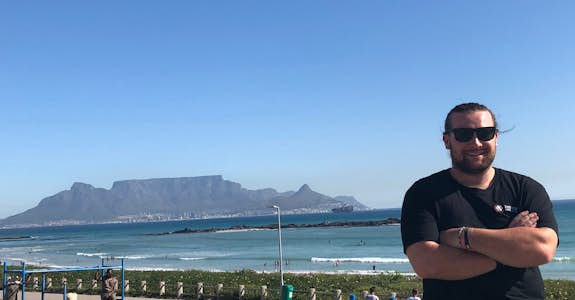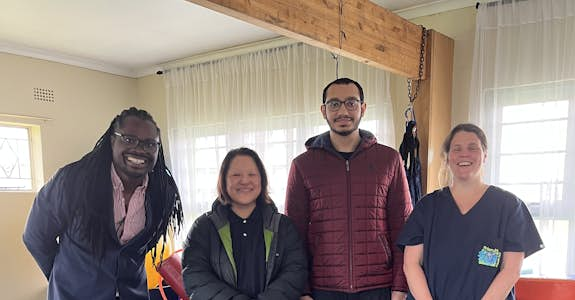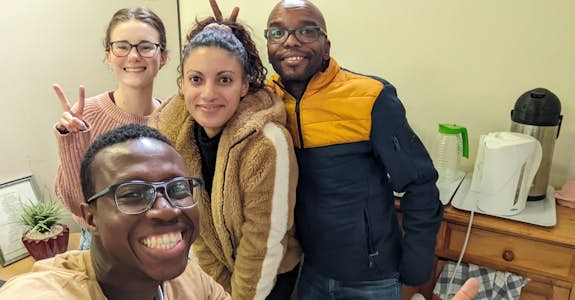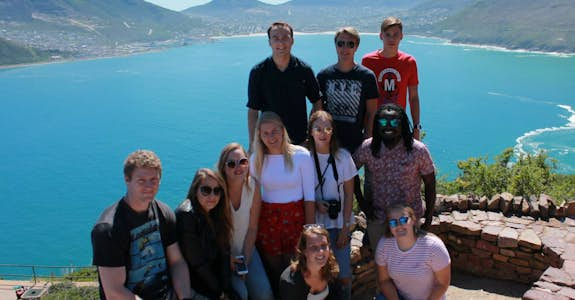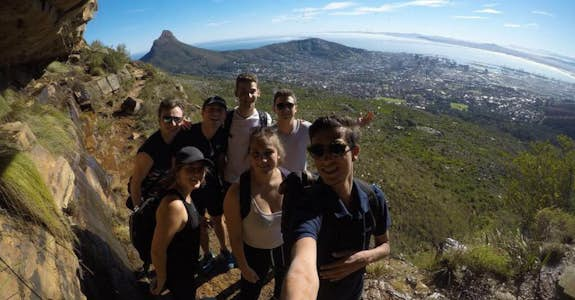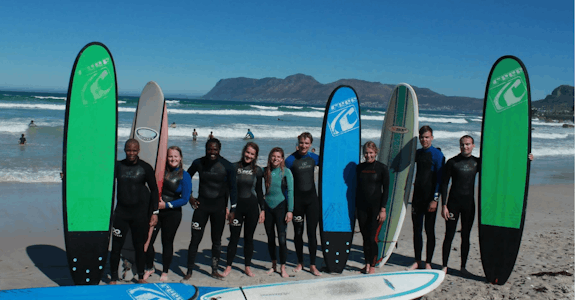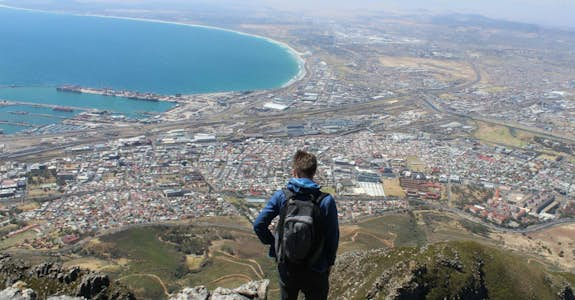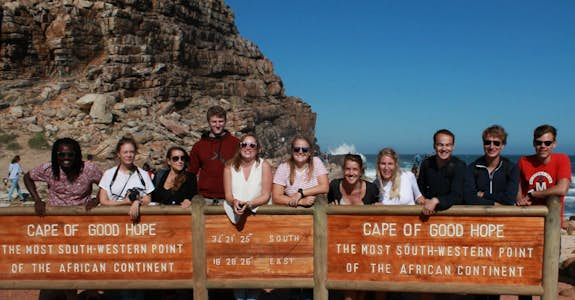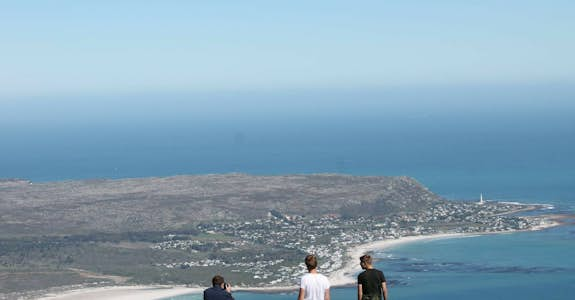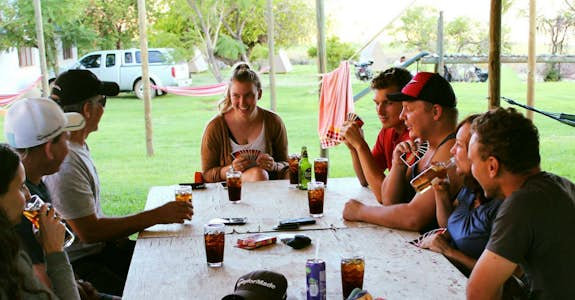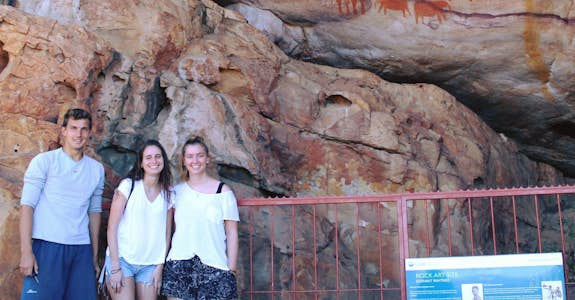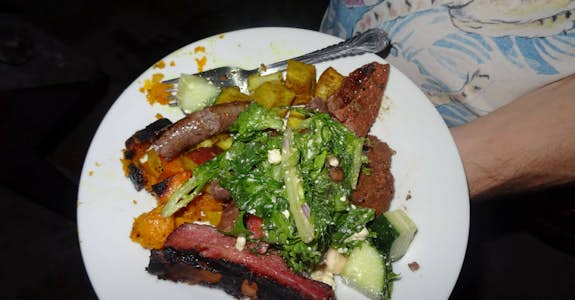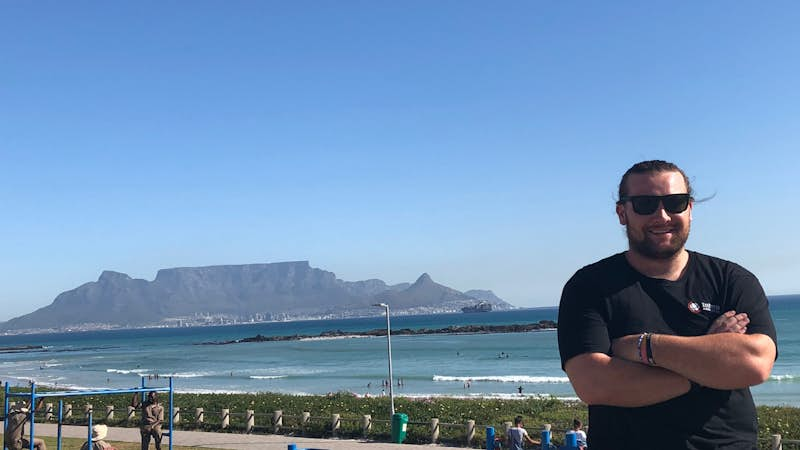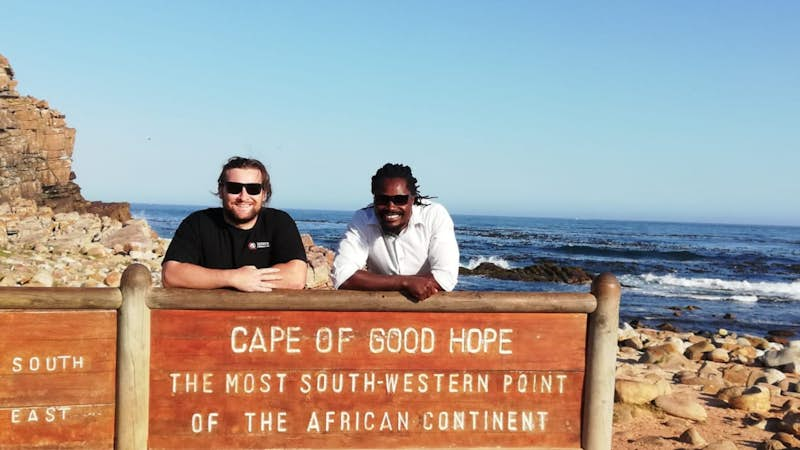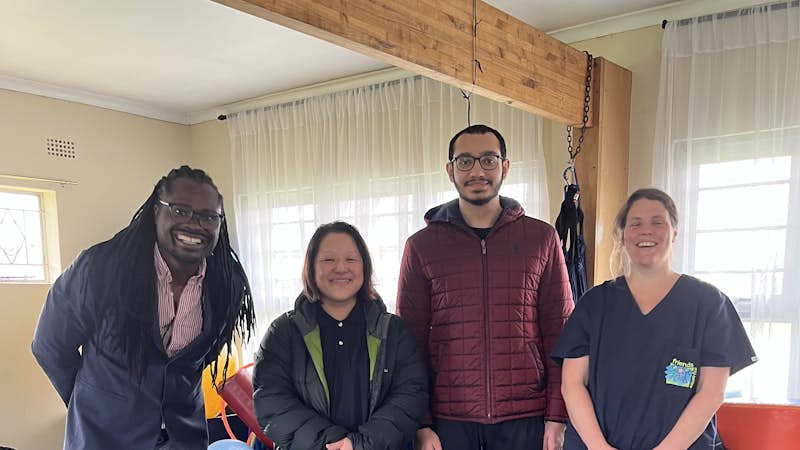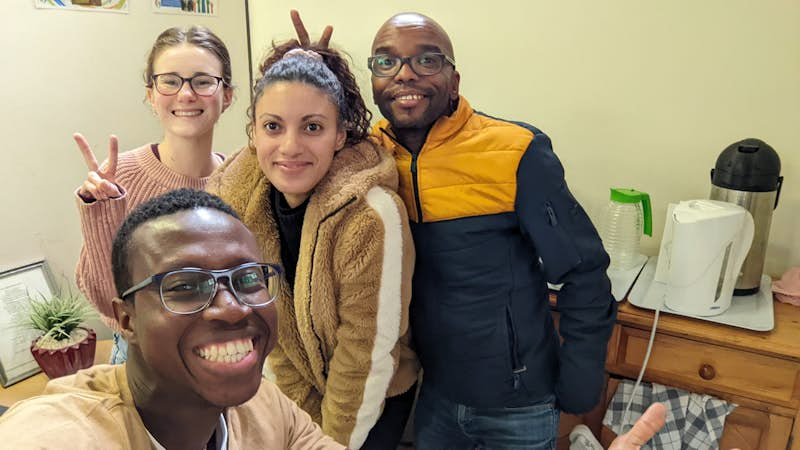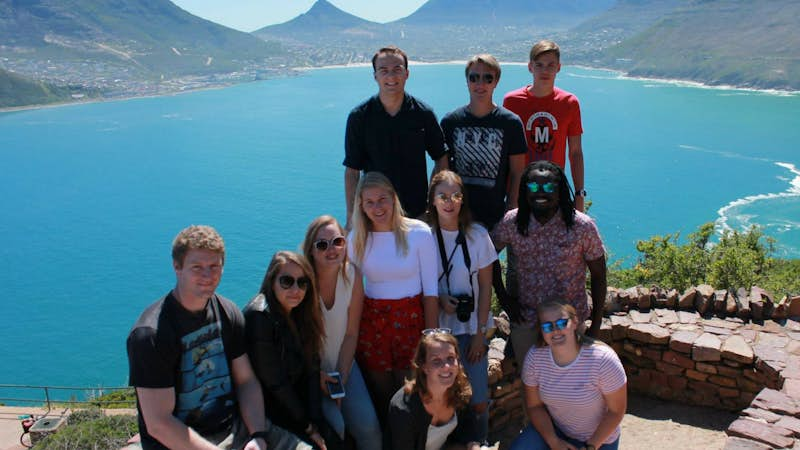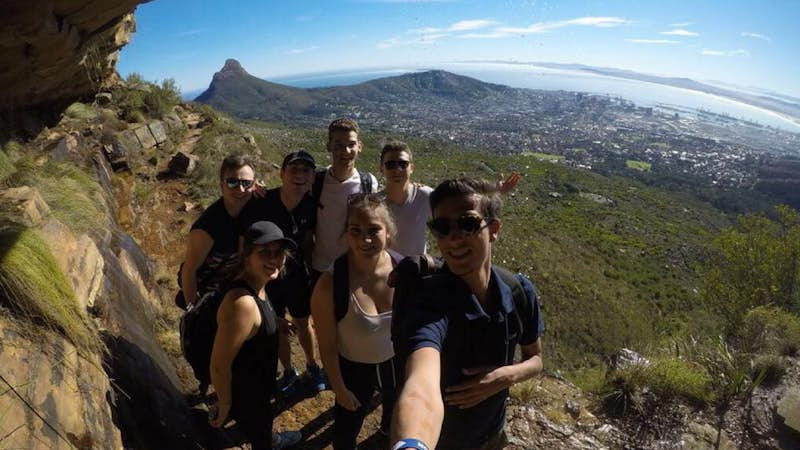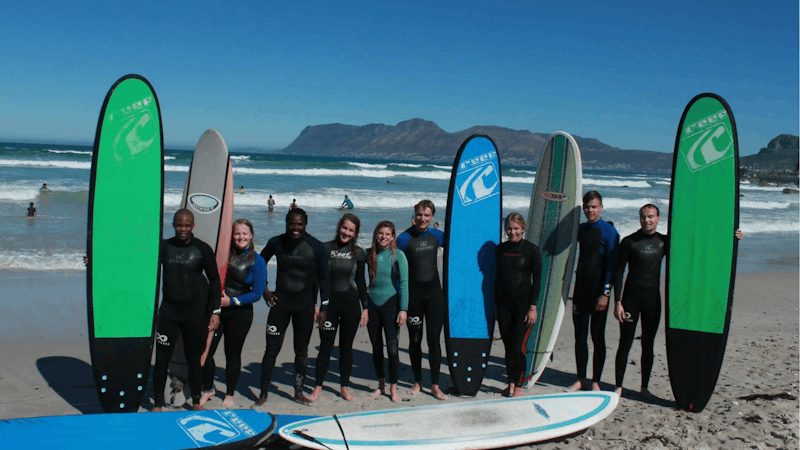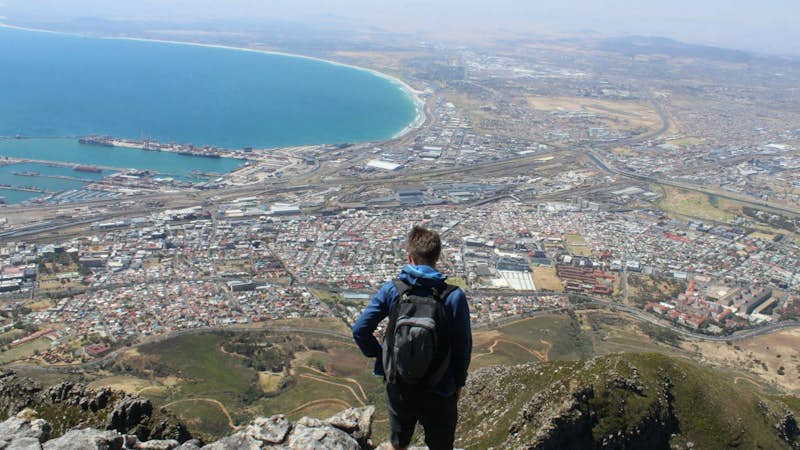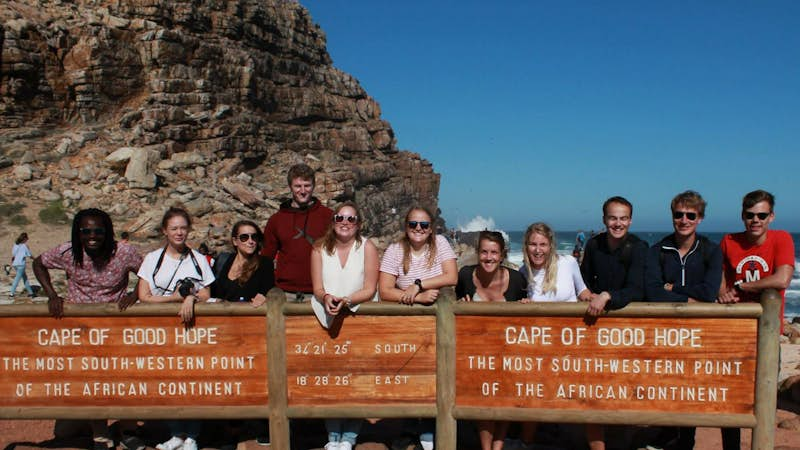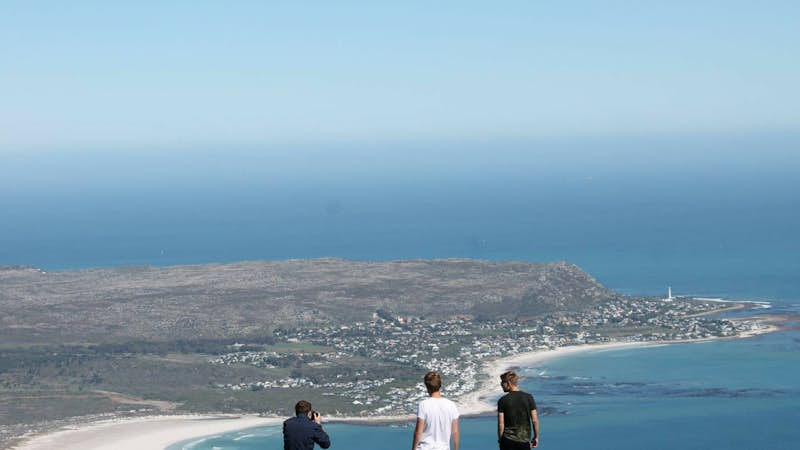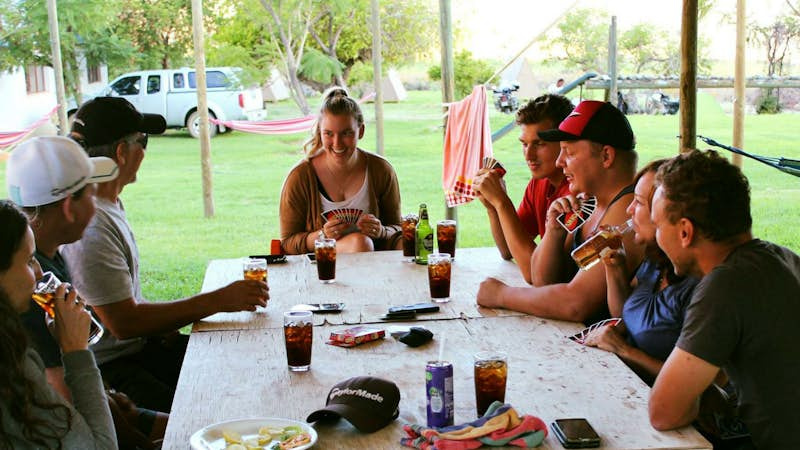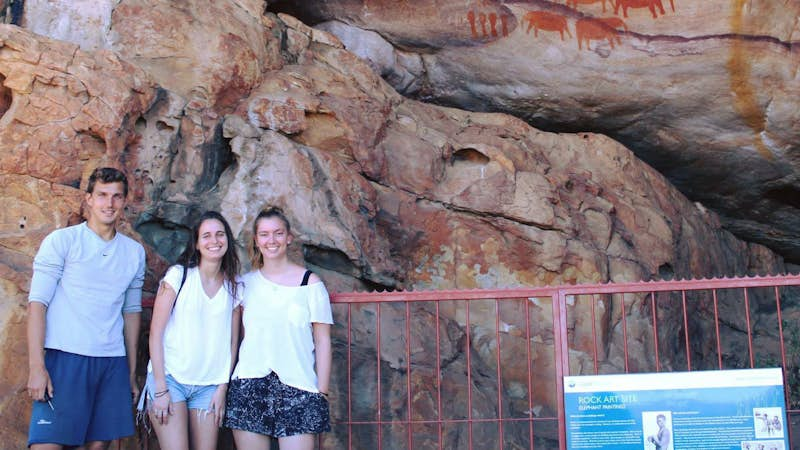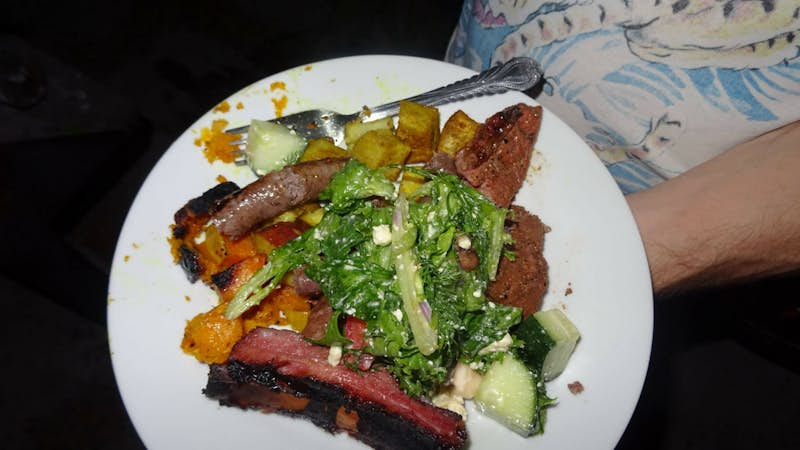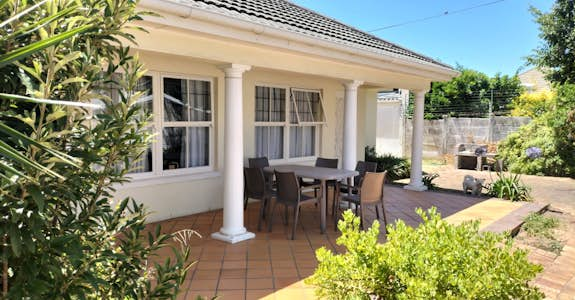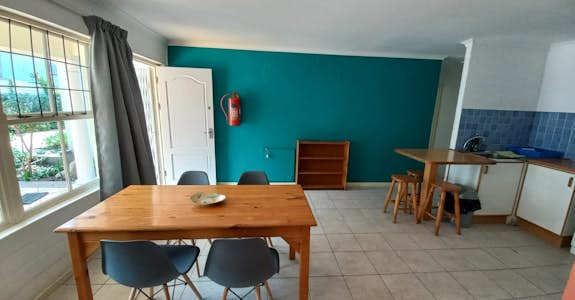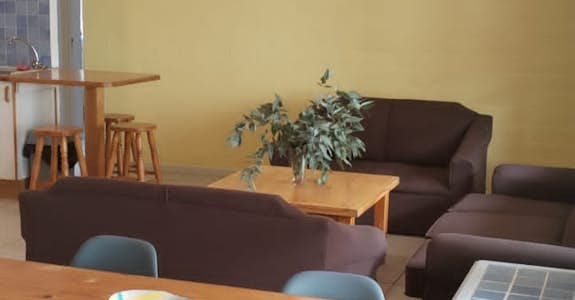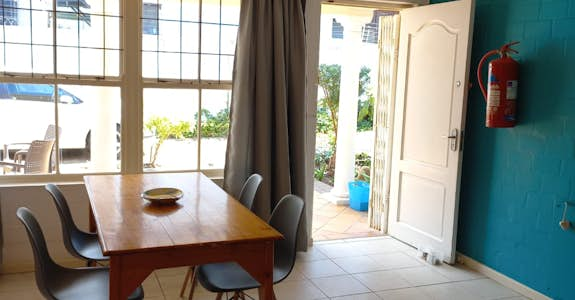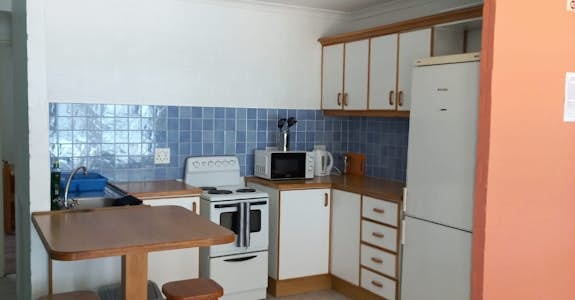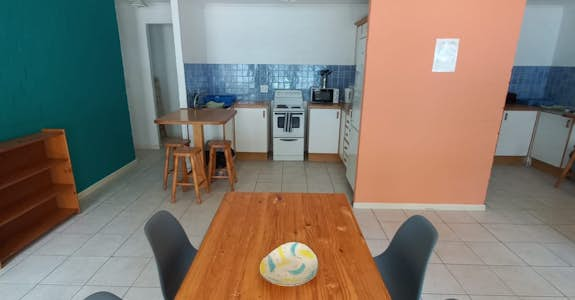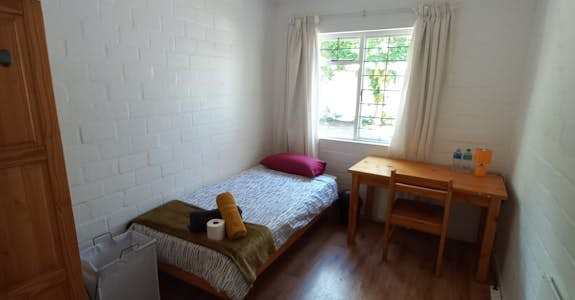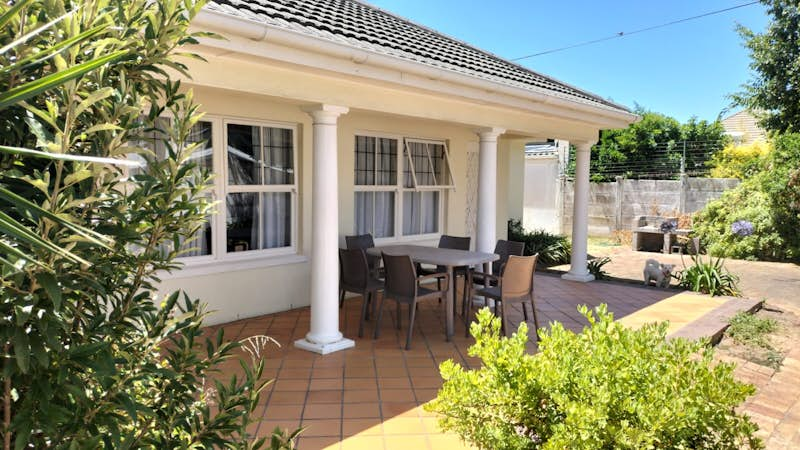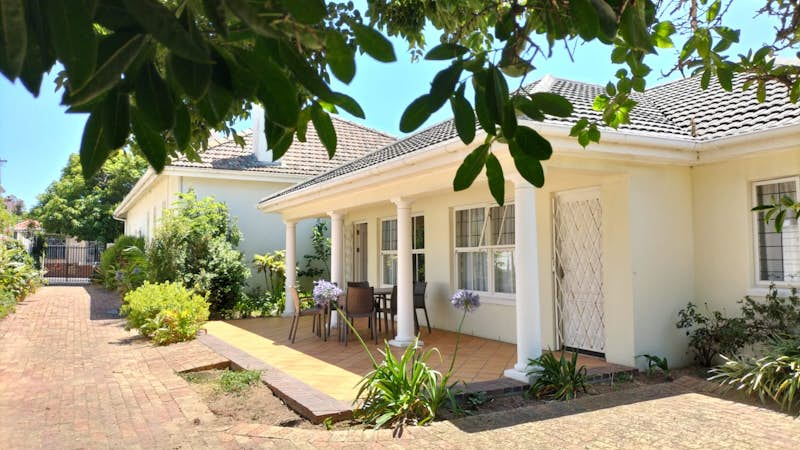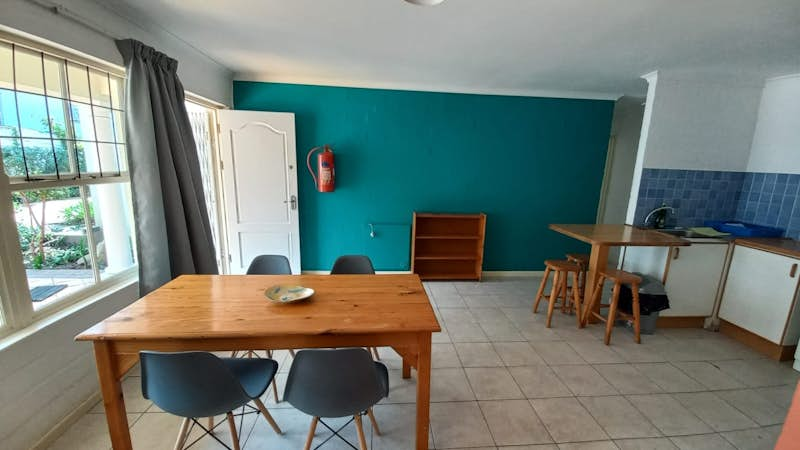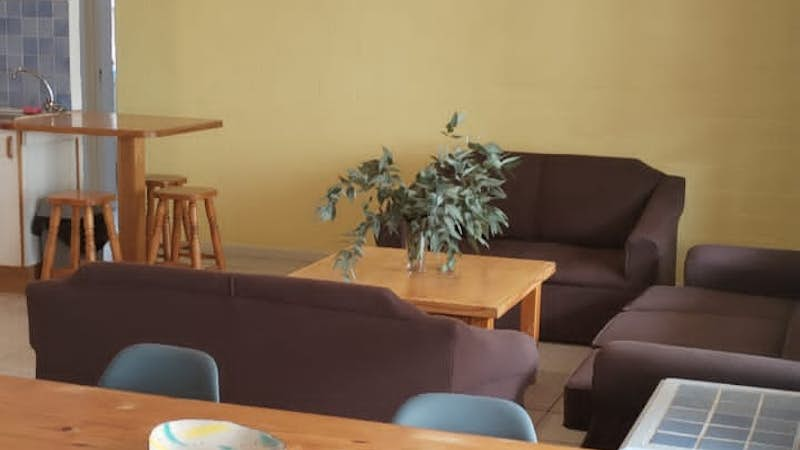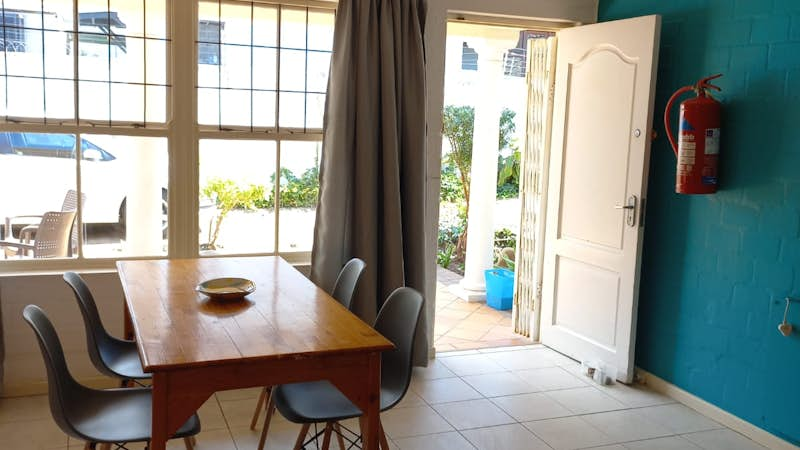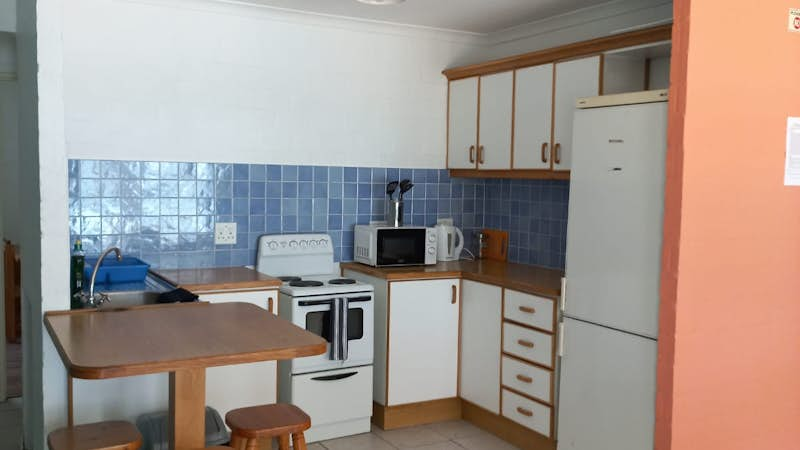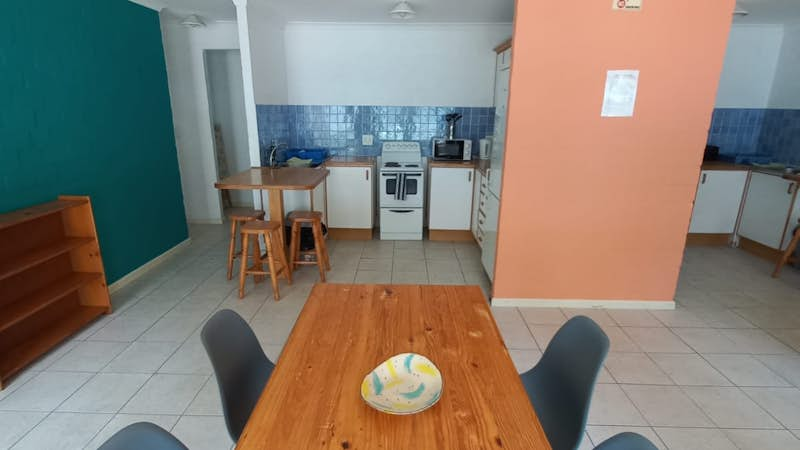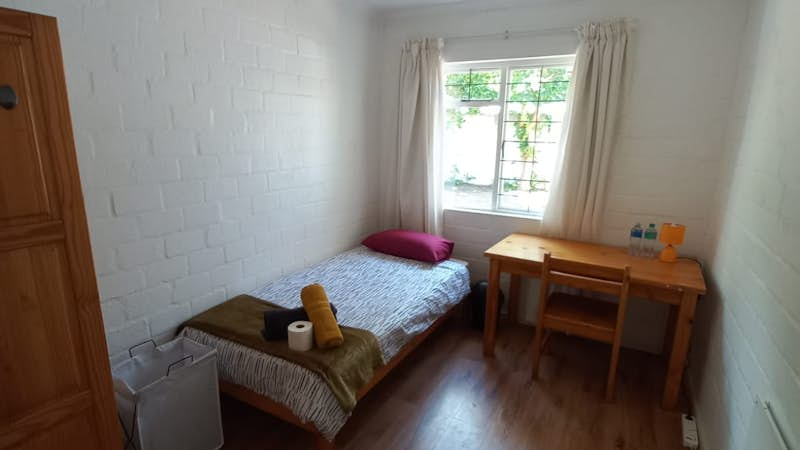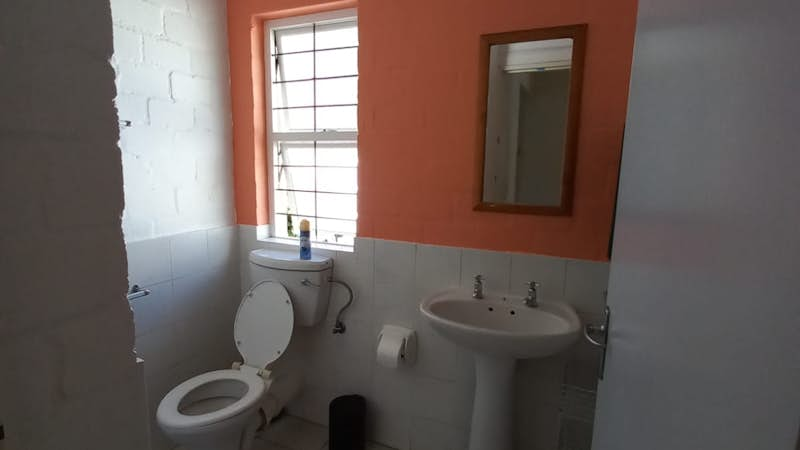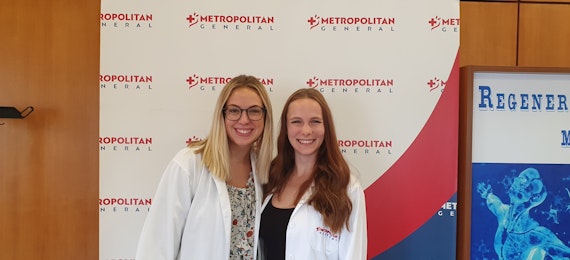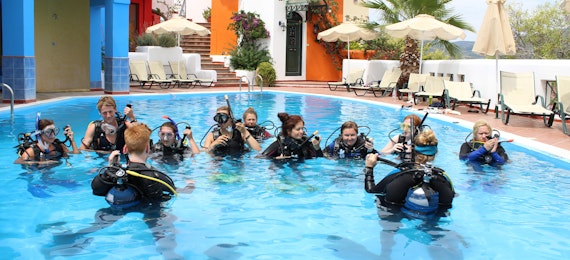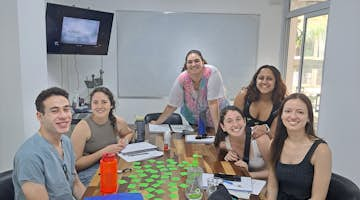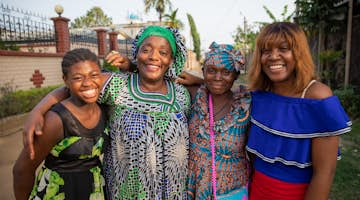
Legal Practice Internships: Intern abroad in Cape Town, South Africa
Excellent research and analysis skills are essential for lawyers in any field, working to understand legal issues and decisions in detail. Legal Practice internships in Cape Town are intended to expose interns to opportunities related to such tasks, in real-world contexts, where professional lawyers can offer interns with an overview of how the legal system works in South Africa. Their clients are diverse but the majority of cases can be related to representation of refugees.
What to expect from your Legal Practice internship:
- Learn about legal cases and challenges from a South African perspective.
- Gain insight into how professional lawyers can work in representation of refugees.
- Build your resume with practical experience related to legal research and administration.
Your internship abroad host organization:
- Law firms / solo practitioners
Internship details
If you’re preparing for a career in law, you’ll know that gaining valuable exposure to different learning experiences will enrich your knowledge and worldview. In this competitive environment, it’s essential to develop practical skills to elevate your classroom learning. Ready to bring a career in law to life? Internships in Cape Town provide exposure to opportunities for developing stronger research and analytical skills, cultural intelligence, and confidence.
This is an in-country internship which includes accommodation. Click here to explore remote Law & Human Rights internships, which you can do from home.
The scope of your role as a Legal Practice intern will be impacted by your chosen duration, as well as your level of experience. Short term interns (one month only) can expect to obtain an overview and understanding of the South African legal system, which may especially pertain to representation of refugee clients. Longer term interns, who have scope to contribute for several months, will likely have broader opportunities to (for example) assist with research related to active cases, assist with appeals, and attend court cases in an observational capacity. (Attendance of court cases in an observational capacity is always subject to availability, regardless of the internship duration). For different examples of previous intern experiences, see “My Human Rights & Law Internship in South Africa” and “Advocating for justice and social inclusion on my Human Rights Law internship in Cape Town”.
For this internship, you will need to bring your own laptop and expect to collaborate directly with your project leader in order to coordinate tasks and planning, since priorities may change from one week to the next. This collaborative approach helps you to become more integrated within the placement.
In all cases, interns should expect that the first week of your experience will focus on settling in and gaining some introductory knowledge, as you will not “hit the ground running”. Rather, you should start with learning about the placement to gain an understanding of what you can build upon, develop, learn, and contribute. Ensure that you ask questions and provide feedback during the introductory period, so that your supervisor understands how you’re progressing. This will help them to better understand important details, such as how quickly you learn, what you find challenging, what you find interesting, etc.
What are the career benefits of interning abroad as a Legal Practice Intern?
Legal Practice interns learn from a qualified and experienced supervisor, and can be involved in:
-
Support research related to representation of clients.
-
Updating files, filing, typing up legal correspondence.
-
Shadowing and/or assisting with client meetings, interviews, and court cases.
Professional development opportunities:
-
Gain understanding of legal practice issues and challenges in South Africa.
-
Learn from an experienced local supervisor.
-
Increase your practical understanding of logistical and administrative requirements.
-
Gain practical skills and boost your employability, with guidance from Intern Abroad HQ’s Experiential Learning Curriculum to support your learning and cultural intelligence.
Are you eligible for this internship?
Submit a free application so we can confirm your eligibility and check availability for your preferred dates.
Not sure which program to join?
South Africa photo gallery
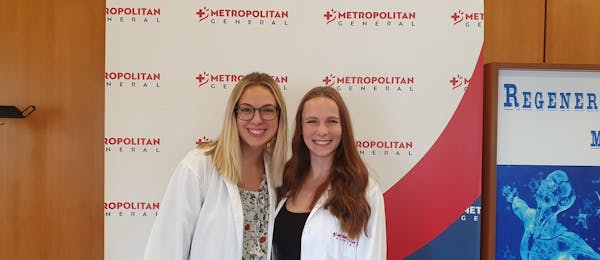
Academic credit available for all internships
Get course credit from your college or university while completing your internship abroad or a remote internship program. It's a great way to meet your academic requirements and gain valuable experience at the same time.
Learn about course creditProgram fees
Applying for our Legal Practice Internship is completely free! The support package covers the assistance we provide in finding your internship and arranging your living accommodations in your host country, ensuring you thrive during your program.
Please note that a deposit of US$499 is required to confirm your place. The remaining balance (minus your initial US$499 deposit) is due at least 60 days before your internship start date.
Duration |
Program Fee (USD) |
|---|---|
| 4 weeks | $2,292 Equivalent to $81 /day |
| 5 weeks | $2,477 Equivalent to $70 /day |
| 6 weeks | $2,687 Equivalent to $63 /day |
| 8 weeks | $3,057 Equivalent to $54 /day |
| 10 weeks | $3,760 Equivalent to $53 /day |
| 12 weeks | $4,131 Equivalent to $49 /day |
| 16 weeks | $4,883 Equivalent to $43 /day |
| 20 weeks | $5,624 Equivalent to $40 /day |
| 24 weeks | $6,366 Equivalent to $37 /day |
- Airport pick-up
- Accommodation
- 24/7 in-country support
- Program orientation
- Dedicated support before, during, and after your internship
- In-country guidance for social and tourist activities
- Sourcing and securing your internship placement
- Personalization of your internship plan
- Coaching from your supervisor
- Documented portfolio of your experiential learnings
- Academic credit facilitation
- International reference letter
- Certificate of Internship Completion
- All meals
- All in-country transportation
- Transfer back to the airport at the end of your internship program
- Visa (if required), flights, travel insurance (mandatory), vaccinations, criminal background check
- Personal spending money for snacks, drinks, public transport, laundry, and leisure activities during your free time.
Free-time experiences & tours in Cape Town
Take your internship to the next level with Intern Abroad HQ's affordable activity and tour add-ons in Cape Town! Explore your options below and learn how to book them once you've been accepted onto an internship program.

Stand at the southernmost tip of the African continent and experience Chapman’s Peak, cute African Penguins at Boulders Beach and Muizenberg’s golden shores with our Cape Point Tour.

Embark on the Garden Route Tour for an adventure of emerald forests, turquoise coastlines and a rich tapestry of wildlife and culture.

Embark on an unforgettable journey with our Safari & Wine Tasting Adventure in South Africa! Experience wildlife encounters and wine tastings against stunning landscapes.
Arrival and Orientation
Internships in Cape Town begin every Monday and interns may choose to spend a minimum of 4 weeks, up to a maximum of 24 weeks. (Exceptions to start date availability may occur when start dates are closed due to public holiday disruptions or if the program has already reached capacity). Fewer internship positions are available during late December and early January, due to the Christmas and New Year holiday period.
Airport pick up and accommodation are included in the Program Fee. The accommodation is covered from the Saturday night before the Monday start date. Interns are asked to arrive on the Saturday before their Monday start date, to allow sufficient time over the weekend to rest and become oriented before beginning on the Monday. The last night of accommodation that is covered by the Program Fee is the Friday night of the final week, leaving interns to depart on the Saturday morning. Extra nights of accommodation can be pre-arranged upon request and paid for separately.
All participants fly into the Cape Town International Airport (CPT), in order to receive their airport pick up and be transported to the accommodation by a pre-arranged driver. Upon arrival to the accommodation, interns are met by a local team member, who will greet them and assist with settling in. Note that all participants are advised not to book flights until they have first registered to confirm their internship placement.
Orientation typically takes place on the Sunday before the Monday start date. It covers important details for the internship, including introductions, information about culture, customs, rules, expectations, safety, language lessons, cultural excursions, and more. Interns join their placement on the following day.
If you are planning to spend time in Cape Town prior to your internship and will not require an airport pick up, we can arrange an alternative pick up from another location within the central city.
Check what's required to visit South Africa
Check out the widget below to learn about the visa requirements for the Legal Practice internship in South Africa, based on your country of residence.
Accommodation and WiFi
Internship placements are spread throughout Cape Town’s main city center and surrounding suburbs. Accommodation arrangements will be confirmed, once your internship placement has also been assigned. In most cases, accommodation will be situated in the suburbs of Observatory and Mowbray, enjoyed for proximity to the CBD and other attractions. Alternatively, accommodations may also be situated within the Newlands district.
Interns are accommodated within shared lodging, making it easy to connect with fellow program participants. Interns can expect to share a room with another intern (of the same gender). Bathrooms are also shared with a hot water shower and western toilets. WiFi is available and is also accessible at nearby cafes and restaurants. All accommodation provides cooking facilities.
Bedrooms are allocated as single-sex. However, the accommodation itself may be mixed-gender. Therefore, all guests must be prepared to share common living spaces which are accessed by mixed genders, such as bathroom, kitchen, living, and dining areas. Requests for any exceptional accommodation arrangements (subject to availability) must be communicated in advance of the internship start date.
It is important to note that an accommodation bond is requested at check-in. The cost of the bond is US$200, so you must budget for this. This bond is refundable, less a US$30 cleaning fee, upon your departure, provided that an inspection has been completed to confirm that you have not caused damage to the property or a need for extensive deep cleaning.
Transportation is not provided for in-country commutes between the accommodation and internship placements, so all interns must budget for this independently. Efforts are always taken to place interns near to main transport systems to provide convenient commuting options. The maximum travel time is typically no more than 60 minutes each way (depending on traffic congestion in the city). In all cases, internship placements will be assigned in consideration of commute logistics and opportunities to ride-share with other interns, where possible.
For convenience and safety, local coordinators can arrange a dedicated shuttle service for ongoing placement commutes (Monday through Friday). The cost for this service ranges from approx. US$200 - US$300 a month, per person, depending on the location of your placement. If you want to organize this service, please communicate with coordinators when your placement details are being arranged in advance. Alternatively, for the use of Uber, it is possible to spend US$10-US$20 per day on rides, depending on where you’re going. Please budget for this, especially if you intend to use this transportation method a lot during weekends and free time.
Please note that the accommodation pictured in the photo gallery of this webpage is provided as an example. Since - depending on capacity - we can work with more than one accommodation address, the exact accommodation location or room that you’re assigned may differ from the photos. Rooms sizes, along with storage space, varies. However, you may expect similar arrangements to those that are demonstrated here. If you have particular requests/questions in advance, please communicate with us in advance.
Meals
It is important to note that internships in Cape Town do not include meals. The accommodation is located within short walking distance to an affordable supermarket, as well as great cafes and restaurants. All accommodation also provides cooking facilities.
You can readily drink the tap water throughout the city. However, it is advised to bring your own water supply when traveling to and interning in the townships.
You should aim to budget approximately US$100 per week for food. If you like to go out frequently (rather than going to the grocery store to prepare some of your own meals) then you need to budget up to US$150 per week, at least (this budget can vary depending on personal spending habits). Note that, when you go to a restaurants, there is a cultural expectation to tip at least 10%.
Essential country information
| Capital | Pretoria (Executive), Bloemfontein (Judicial), Cape Town (Legislative) |
| Population | 55.91 million |
| Languages | Afrikaans, English, Zulu, Xhosa, Swati, Tswana |
| Currency | South African Rand (ZAR) |
| Time zone | UTC+02:00 |
Weather and climate:
South Africa is generally temperate, however due to varied topography and oceanic influence, a great variety of climatic zones exist. This ranges from the extreme desert of the Namib (northwest South Africa), to the subtropical climate along the Mozambique border and the Indian Ocean (eastern South Africa). Winters in South Africa occur between June and August.
In Cape Town, the summers are warm, dry, and mostly clear; the winters are long, cool, wet, and partly cloudy. It is windy year round and common to see windsurfers enjoying the surf. Over the course of the year, the temperature in Cape Town typically varies from 48°F (9°C) to 76°F (24°C). The warm season in Cape Town usually ranges from December through March and the coldest months are June through September.
What recent Legal Practice interns said about their experience
My current internship role at my host organization played a crucial part in achieving my long-term career goals in international development and social change. As a student in International Studies, I aim to work in roles that address global challenges through effective, culturally sensitive strategies. This internship helped me build the foundation for this career path in several meaningful ways. One of the key skills I've developed is the ability to understand and implement local solutions for local problems. My tasks emphasized the importance of community-driven approaches rather than imposing external ideas. I’ve learned that real impact comes from supporting and enhancing local initiatives rather than directing from the outside. This perspective is essential for a career in international development, where successful projects often depend on adapting solutions to fit the specific needs and contexts of the communities being served. I also developed skills in cross-cultural communication, which are vital for any international development role. Interning in Cape Town showed me how to navigate diverse perspectives and collaborate with individuals from different backgrounds, enhancing my ability to work in global contexts. Finally, I also learned how to design and implement community outreach programs. By participating in and observing these initiatives, I’ve gained practical experience in creating effective awareness campaigns and measuring their impact—skills that are directly applicable to roles in international development.
I enjoyed the internship as it made me realise more about what a solicitor would do, which in a few years i would be doing in the UK. I did a lot of practical work; not only theory, which I really enjoyed as a law graduate. I had a lot of practical experience which will be very useful for me.
The Human Rights Law internship in South Africa greatly empowered me because I realized that I am actually made for a career in law - it gave me the opportunity to immerse myself in a new culture, provided me with fulfillment, confidence, a sense of purpose and expanded my worldview. I met with real-life clients, handled legal cases and went to court - these are experiences that I’d never get from a textbook! The internship also taught me how to adapt to situations quickly and working with different kinds of people allowed me to acquire social skills that are useful in the workforce. I felt so welcomed from the beginning and fostered friendships with my colleagues and other interns as we created our little family outside of our countries and supported each other.
My long term goal is to become a Human Right Officer. This internship contributed towards this goal because it showed me how human rights officers advocate for justice and fight for the underprivileged. I came into this experience looking for personal growth, and this internship has done just that. I have proved to myself just how reliable, intelligent, professional and confident a woman I can be. I was able to see regardless of how the world wants to perceive me, I am an intelligent, beautiful black woman who has the right to go and be anywhere I choose. This internship showed me how worthy, intelligent and capable I am of doing big things. More importantly, it has pointed me in the right direction for my future. During the internship, I contributed by sharing my ideas. I could speak freely and suggest ideas and activities that could help better the organization. It gave me the opportunity to meet wonderful women from across the world. Working with them, hanging out with them and all the laughter we shared was truly amazing.
To read all reviews, visit our reviews page.

